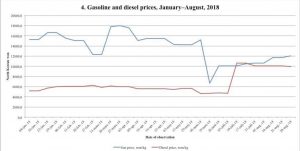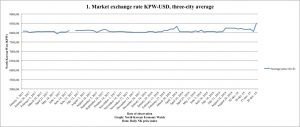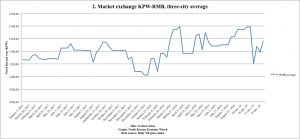Benjamin Katzeff Silberstein
One of the many ways in which North Korea earns hard currency is sales of fishing rights to vessels from China. This is also supposedly one of the reasons for the North Korea “ghost ships” drifting to Japan. Because many fishings rights near North Korea are sold to Chinese vessels, North Korean boats have to go further out, often without adequate fuel supplies. Kyodo News reports that the UN panel of experts will soon publish their report detailing some of these fishing rights sales, which breach the sanctions currently in place:
The claim is based on information provided by two unnamed member states, though one has been identified as Japan, according to officials in Tokyo.
It is also expected to be reported that more than 15 Chinese fishing vessels were inspected and found to be carrying licenses from North Korea, officially known as the Democratic People’s Republic of Korea, during the reporting period of January-November 2018.
It is anticipated that information obtained from fishermen who were questioned will reveal that around 200 Chinese fishing vessels were operating in North Korean waters. Based on another interview, it was discovered that the price of a single fishing license cost about 50,000 yuan ($7,250) per month.
The fishing vessels apparently displayed fishing permit number plates that were attached to the outside of the vessels, flown on flags, or both in combination.
These actions violate a Security Council resolution adopted in December 2017 in response to Pyongyang’s ballistic missile launch the previous month. In it, the 15-member council clarified that any sale of fishing rights by North Korea was strictly prohibited.
Last September, Japan’s Foreign Minister Taro Kono highlighted concerns about the sale of fishing rights as well as ship-to-ship transfers of petroleum products as two examples of the North’s “sophisticated efforts to evade and circumvent” past resolutions.
The resolutions were imposed on the country in escalating fashion as it carried out a total of six underground nuclear tests and numerous missile launches using banned equipment.
Each year, the panel prepares its report based on information analyzed by its eight members, who have expertise on a variety of issues such as nuclear nonproliferation and export trade control.
Full article:
N. Korea likely to be accused of illegally selling fishing rights
Kyodo News
2019-01-31



